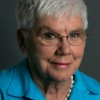Want to know what books Dorothy Rowe recommends on their reading list? We've researched interviews, social media posts, podcasts, and articles to build a comprehensive list of Dorothy Rowe's favorite book recommendations of all time.
1

Edmund Gosse, Michael Newton | 3.96
'This book is the record of a struggle between two temperaments, two consciences and almost two epochs.' Father and Son stands as one of English literature's seminal autobiographies. In it Edmund Gosse recounts, with humour and pathos, his childhood as a member of a Victorian Protestant sect and his struggles to forge his own identity despite the loving control of his father. A key document of the crisis of faith and doubt; a penetrating exploration of the impact of evolutionary science; an astute, well-observed, and moving portrait of the tensions of family life: Father and Son... more 'This book is the record of a struggle between two temperaments, two consciences and almost two epochs.' Father and Son stands as one of English literature's seminal autobiographies. In it Edmund Gosse recounts, with humour and pathos, his childhood as a member of a Victorian Protestant sect and his struggles to forge his own identity despite the loving control of his father. A key document of the crisis of faith and doubt; a penetrating exploration of the impact of evolutionary science; an astute, well-observed, and moving portrait of the tensions of family life: Father and Son remains a classic of twentieth-century literature. As well as an illuminating introduction, this edition also provides a series of fascinating appendices including extracts from Philip Gosse's Omphalos and his harrowing account of his wife's death from breast cancer. less 
William FiennesThere are autobiographies that are fantastically egotistical, but they tend to be not very good books. The universal is in the small. You write about your own life, but if you write about it with enough love and care then it will have the universal running through it. This book is a good illustration. It’s alive with specificity but it’s full of the universal – fathers and sons, children growing... (Source)

Dorothy RoweI have read innumerable books over my lifetime and some I would have said in the past were wonderful. But the only book that, in my eyes, has remained wonderful is Edmund Gosse’s Father and Son. When it was first published in 1907 it was shocking because up till then no son would ever criticise his father. (Source)
2

Written by one of the world's leading neuroscientists, Making Up the Mind is the first accessible account of experimental studies showing how the brain creates our mental world.
Uses evidence from brain imaging, psychological experiments and studies of patients to explore the relationship between the mind and the brain
Demonstrates that our knowledge of both the mental and physical comes to us through models created by our brain
Shows how the brain makes communication of ideas from one mind to another possible more Written by one of the world's leading neuroscientists, Making Up the Mind is the first accessible account of experimental studies showing how the brain creates our mental world.
Uses evidence from brain imaging, psychological experiments and studies of patients to explore the relationship between the mind and the brain
Demonstrates that our knowledge of both the mental and physical comes to us through models created by our brain
Shows how the brain makes communication of ideas from one mind to another possible less 
Sarah-Jayne BlakemoreIt’s about consciousness, and how we are conscious, and how our brains enable us to be conscious, and to have awareness of the world around us. (Source)

Dorothy RoweThis first book is by Chris Frith, Making up the Mind, How the Brain Creates our Mental World. Everything that I have written has been based on the proposition that what determines our behaviour isn’t what happens to us but how we interpret what happens to us. The basis of that is what neuroscientists have been showing over the last 20-odd years, which is that the way our brain operates means... (Source)
3

We are, to use a technical economic term, screwed. The cowboy capitalists had a party with everyone's money and now we're all paying for it. What went wrong? And will we learn our lesson - or just carry on as before, like celebrating surviving a heart attack with a packet of Rothmans?
If you want to know, but are the sort of person who finds it hard to tell the difference between a CDO a CDS an MBS and a toasted cheese sandwich, John Lanchester has mastered the finer points of finance so you don't have to. In Whoops! he explains, in language everyone can understand, what really... more We are, to use a technical economic term, screwed. The cowboy capitalists had a party with everyone's money and now we're all paying for it. What went wrong? And will we learn our lesson - or just carry on as before, like celebrating surviving a heart attack with a packet of Rothmans?
If you want to know, but are the sort of person who finds it hard to tell the difference between a CDO a CDS an MBS and a toasted cheese sandwich, John Lanchester has mastered the finer points of finance so you don't have to. In Whoops! he explains, in language everyone can understand, what really happened - and what on earth we do next. less 
Dorothy RoweYes, but capitalism is a relatively recent event in that way. None of this was true in the middle ages. In John Lanchester’s book Whoops!, which is my next choice, he points out that during the Cold War communism and capitalism were balanced – so capitalist America did nice things to show that they were nicer than these horrible communists. And at the time a lot of people had put their hopes in... (Source)
4

'Mum is never more anxious than at a celebration, hovering around us with red chillies to frighten away evil spirits. I hate that I’ve inherited this attitude: sometimes I can feel the end of good things before I’ve even had a chance to enjoy them. But finally I understand why my mother was so fond of the phrase: that’s how life was for her. For years, for every one shot of happy, there would be two shots of sad.'
When Sathnam Sanghera was twenty-four years old he made a discovery about his family that would both darken, and illuminate his life. It would set him on a journey into... more 'Mum is never more anxious than at a celebration, hovering around us with red chillies to frighten away evil spirits. I hate that I’ve inherited this attitude: sometimes I can feel the end of good things before I’ve even had a chance to enjoy them. But finally I understand why my mother was so fond of the phrase: that’s how life was for her. For years, for every one shot of happy, there would be two shots of sad.'
When Sathnam Sanghera was twenty-four years old he made a discovery about his family that would both darken, and illuminate his life. It would set him on a journey into his family’s past: from his father’s harsh life in rural Punjab, to the terrifying early years of his parents’ marriage in England; from his mother’s extraordinary resilience as she brought up her young family in a foreign land, without any knowledge of its language, to the author’s happy memories of his own childhood – his obsessions with George Michael and a desire to have the perfect top knot. And, most affectingly of all, this discovery would finally force Sanghera’s own secret life into the glaring light: his longing for romantic love which he had, for fear of family rejection, kept utterly hidden from his beloved mother.
From Hindu hairdressers to the Wolverhampton tourist office, from terrifying violence to boundless family loyalty, If You Don’t Know Me by Now is a heart-rending account of one family’s unimaginable suffering and also its great capacity for love. In a voice that is by turns tender and wonderfully funny, Sathnam Sanghera tells a story of the seemingly unbridgeable, and often harrowing, gulf between classes, cultures and generations and also provides a moving testament to the surprising power of unconditional love. less 
Dorothy RoweYes. The new title is Boy with a Topknot but it was also called If You Don’t Know Me By Now in hardback. This is just a beautifully written and, again, painfully truthful account of a life. Because Sathnam has to admit that he lived in this close-knit family and he didn’t notice that his father was really very odd. He was a grown man before he heard the world schizophrenic applied to his father.... (Source)
5

Gitta Sereny is one of the world's most respected journalists and historians. This book gathers together the best of her writing on Germany from over sixty years. It amounts to an extraordinary portrait of the country and its people, how they have come to terms with their Nazi past, both collectively and in specific instances - and how the burden of their guilt has altered the national identity. She writes about key individuals - Stangl, Speer - and the questions which their lives raise. The penetration and conviction of her writing throughout is startling and she constantly reminds us why it... more Gitta Sereny is one of the world's most respected journalists and historians. This book gathers together the best of her writing on Germany from over sixty years. It amounts to an extraordinary portrait of the country and its people, how they have come to terms with their Nazi past, both collectively and in specific instances - and how the burden of their guilt has altered the national identity. She writes about key individuals - Stangl, Speer - and the questions which their lives raise. The penetration and conviction of her writing throughout is startling and she constantly reminds us why it is important to consider the questions she addresses - war guilt, holocaust denial and the temptations of obedience. less 
Dorothy RoweThis is a collection of essays that tells her wonderful story, her extraordinary story, and it gives you an idea of the sheer breadth of the work that she did on Nazi Germany and all of the people she knew and knew really well – the mass murderers who she met after the end of the Second World War, when it was becoming clear what they had done. How could they? All these cultured, educated Germans,... (Source)
Don't have time to read Dorothy Rowe's favorite books? Read Shortform summaries.
Shortform summaries help you learn 10x faster by:
- Being comprehensive: you learn the most important points in the book
- Cutting out the fluff: you focus your time on what's important to know
- Interactive exercises: apply the book's ideas to your own life with our educators' guidance.


